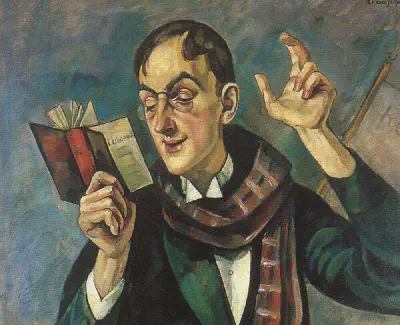Welcome to the final piece in this short series on wisdom. Over this series, we’ve explored a rich range of traditions to try and get a handle on what wisdom is (if it is anything at all), how it matters (if it matters), and how to cultivate it (if it is the kind of thing you can cultivate).
We’ve covered a lot of ground over the past few articles. So in this piece, we’re going to take a quick tour of the territory we have explored. And then we’re going to come right up to date by asking about what contemporary science has to say about wisdom.
For some scientists, although wisdom was once the domain of philosophy and religion, it is now increasingly something that we can understand scientifically. This being the case, they argue, we no longer have any need of philosophy. But is this true? And is wisdom so easily tamed?
On the way to wisdom
But before we talk about all this, let’s go back to the beginning. In the first article in this series, we started out by asking what wisdom is. Drawing on a range of philosophical approaches, we saw that wisdom involves a combination of clear-sightedness, skill in navigating the world, the ability to effectively manage our lives, and the ability to communicate all this to others.
We also saw how, although wisdom might seem an elevated goal, it is also often quite ordinary. Wisdom isn’t just about abstruse theories. It is also about how we go about our lives. However clever somebody might be, if they spend their practical lives getting into all kinds of scrapes, it’s not clear we could call them wise. So in the second piece, we looked at Aristotle, and the distinction he makes between phronesis (practical wisdom, or wisdom associated with praxis) and theoria (theoretical wisdom).
What makes Aristotle’s account challenging is that he upends many of our assumptions about the relationship between theory and practice. For him, practical wisdom can never be simply about applying theory to specific circumstances. Instead, Aristotle insists that practical wisdom is a wholly different kind of thing from theoretical wisdom. In practical wisdom, he argues, the specific circumstances always have a greater weight than any general rules. This makes practical wisdom a kind of navigational skill (as we saw in the story of our two seafarers in the second piece).
This goes against present-day intuitions. We tend to think that theory is validated by how useful it is. Only when we can find a theory’s practical application does it justify us going to the trouble of developing theoretical wisdom in the first place. But Aristotle disagrees. For him, things are the other way round. It is not the job of theory to inform practice. Instead, it is the job of practice to build a foundation of wise action, which is a necessary condition for us to build a life dedicated to theoretical contemplation.
In the third piece, we looked at the limits of wisdom. What if the wisdom we hope for, or to which we aspire, is forever out of reach? There’s a strong precedent for this thought. The wisdom of Socrates consisted in knowing how much he didn’t know. And the Zhuangzi is sceptical about the very idea of the pursuit of knowledge and virtue. For the Zhuangzi, the quest for wisdom is a kind of wild goose chase, as we try to cram an infinity of things we could know into the finite vessel of our minds. And the pursuit of virtue, or practical wisdom, is similarly problematic: after all, the Zhuangzi asks, what if our pursuit of virtue simply screws things up?

In the fourth article, we looked at an ambiguity that has existed in the European philosophical tradition since Greek times. According to Plato, Socrates argued that wisdom was a matter of leaving behind, as far as possible, our concern with the body. Wisdom is about accessing the pure realms of thought, far from the mess of our bodily lives. But Xenophon’s account of Socrates gives a very different view. For Xenophon, Socrates argued that the body had a crucial role in wisdom, even if we understand wisdom in the most refined and theoretical sense. We all know that we can’t think clearly if we have a fever, if we are drunk, if we are tired, or if we are in physical distress.
Practical wisdom is about action, so it necessarily depends on the body. But theory or contemplation involves the body too, simply because there is always a physical, embodied person who is doing the contemplating. Here Aristotle seems close to the mark when he says that developing practical wisdom (which involves action, and so also involves the body) is a precondition for contemplation. Despite the views that Plato attributes to Socrates, this all suggests the body has a huge role to play in the pursuit of wisdom. The search for better, wiser ways of living necessarily involves, to use a term from contemporary philosopher Richard Shusterman, somaesethetics: the attention to and the use of the body in particular ways.
In week five, we returned to Aristotle to ask about the role of virtue in human flourishing. We also looked at Aristotle’s Chinese contemporary Mencius, or Mengzi, who had a clear-eyed appreciation of how flourishing is not just individual, but also social and political. If we care about flourishing, we need to put in place the conditions so that we can collectively flourish. We need to ask not only how we ourselves can become wise and virtuous, but also how we can build a wiser, more virtuous social order.
Then in week six, we circled back to the question of wisdom and its limits to ask about whether wisdom’s apparent opposite—foolishness—might harbour some kind of strange wisdom of its own. We looked at the idea of the wise fool who carries a lamp through the streets in daylight, and traced this idea all the way from Diogenes to Rumi. We asked whether wisdom is always doomed to be *atopos—*at odds with the world. And finally, we explored the idea of moral foolishness. Because perhaps the wisest course of action is to make peace with our foolishness, giving up on our pursuit of wisdom and virtue. This is a view that is suggested by the Zhuangzi, with its pungent criticisms of the harms caused by the Confucians as they strain after goodness.

A science of wisdom?
For anybody who cares about attaining some measure of wisdom, there might be something depressing in this riot of dissenting philosophical views. The philosophers seem to have a lot to say, but they also don’t seem to agree on much. This being the case, it is not surprising that over the past half century, scientists have started to turn their attention to wisdom, to try and clear up some of the mess left by the philosophers.
The earliest glimmerings of what is now often called “the science of wisdom” can be traced by to the 1950s, when the psychologist Erik Erikson proposed that wisdom could be seen as the final and culminating stage in human development. Erikson’s work was taken up by Vivian Clayton, who wrote her doctoral dissertation in 1976 on the empirical study of wisdom. At the end of the dissertation, Clayton set out a clear vision of how science might come to save us from the confusions of the philosophers:
Wisdom has had meaning and relevance in religious and philosophical circles for centuries. It is hoped that this study will be the first of many that elevate the concept of wisdom to scientific status and usefulness.[1]
But it has taken the best part of five decades to put the scientific study of wisdom on a firmer footing. Part of the problem is that despite a proliferation of research that claims to be working on the science of wisdom, a consensus about what wisdom is has only emerged very slowly. Nevertheless, according to Igor Grossmann from the Wisdom and Culture lab at the university of Waterloo in Canada, this is beginning to change. In 2019, Grossmann gathered together a motley collection of scientists working on the topic of wisdom, to attempt to break the deadlock. Grossmann writes:
Our chief goal was to explore the possibility of a scientific consensus on the psychological characteristics of wisdom and best practices for its measurement. We hoped to take down wisdom from its mystical pedestal and find a more pragmatic concrete footing that would work not just for sages and fictional charcters, but also for regular humans.[2]
Meta-cognition and moral aspiration
The consensus reached by Grossmann and his colleagues was that this slippery thing called “wisdom” seems to rest on two pillars. The first pillar is moral aspiration. This, more or less, is the aspiration that we might have, among all the complexity and confusion of everyday life, to do the right thing. The second pillar is meta-cognition. This is the ability to think about thinking, or to subject our thinking to scrutiny, rather than simply taking it for granted.
For Grossmann, these two work together. Without one or the other, wisdom is either lopsided or non-existent. Moral aspiration without meta-cognition can be naive and destructive. On the other hand, meta-cognition without moral aspiration looks like a kind of sociopathy, a low cunning that is only interested in gain. But taken together, the two of these balance each other out and set us on a course for better, wiser lives.
If this description of wisdom feels familiar, it is because we have encountered it before, in the person of Socrates. The Greek philosopher hungered to know what things like “virtue” or “piety” meant: he was the embodiment of moral aspiration. And he also subjected his own thinking, and the thinking of others, to severe scrutiny. He had the humility to know how much he didn’t know. This looks very like meta-cognition.

Why we still need philosophy
So it might seem that what was once the province of the philosophers is now, at long last, put on a firm footing so that it can be understood scientifically. From the confusing mix of elements bundled together by the philosophers, we have isolated two things that are theoretically measurable. This means that we can set about measuring them, and then we can think about wisdom more systematically.
But things are not quite so simple. It is true that Grossmann and his colleagues have taken elements of various philosophical traditions, and boiled them down to two measurable things that relate in some way to some philosophical accounts of wisdom. But we should also ask what this two-pillar account of wisdom leaves out.
The first thing to notice is that this account makes wisdom a personal achievement: both meta-cognition and moral aspiration are more individual than collective goods. But what about more social visions of wisdom? You can imagine that after hearing about moral aspiration and meta-cognition, Mencius might shake his head and say that this is all very well, but what about the cattle grazing on ox mountain, and the broader social conditions that support wisdom?
A second argument against this as a final and definitive account of wisdom is that it risks down-playing the problems with moral aspiration. As we saw in the last piece on moral foolishness, moral aspiration can be a serious cause of division. And this is something that both Socrates and the Zhuangzi seemed to agree on. It might possibly be that with enough meta-cognition, the down-sides of moral aspiration can be kept in check. But it is not clear that this is the case.
Another thing to notice is that this is an account that sees wisdom as something incremental, rather than something that represents a radical break with the everyday. Here we have to ask about whose moral aspiration we are talking about. Think of Diogenes with his lamp, lurching around Athens and pouring scorn on his contemporaries. Or think of the philosopher who is weird and out-of-place, who is atopos. There’s a risk that this scientific account of wisdom is too safe, too supportive of current social structures. What about the wisdom that disrupts the consensus by means of which we live—even at the cost of seeming like madness—and tries to show the hidden madness within our everyday lives?
And this leads to a final objection. Any account of wisdom, it seems, must necessarily imply a particular vision of the good life. So to say that we have cracked the idea of wisdom once and for all is to commit ourselves, whether by accident or design, to one particular model of the good life. A society of those who are skilled in meta-cognition (those who are good at thinking about their own thinking) and who possess strong moral aspirations (those who desire goodness) doesn’t sound too bad. But it reflects a very specific set of values, not all of which would be shared by the philosophers we have been talking about over the duration of this course. And we would do well to remember that there may be more than one form of the good life.
This is not to say that scientific research like this is without value. It is only to say that we need to recognise its limitations, rather than assuming that the job of philosophy has been taken over by the empirical sciences. Because when it comes to the complexity of human lives, philosophy always has a habit of creeping back in, just when you least expect it…
Discussion questions
- What benefits do you think there might be to taking a scientific approach to wisdom?
- Grossmann suggests that wisdom rests upon two pillars: meta-cognition and moral aspiration. Do you think this account is complete enough? Or would you build a few more pillars? If so, which ones?
- Of the objections raised here to the idea of wisdom as a topic for scientific study, which if any is the strongest? And which is the weakest?
Notes
[1] Vivian Clayton, A Multidimensional scaling analysis of the concept of wisdom, Dissertation, University of Southern California, Graduate School, September 1976, Page 68
[2] Igor Grossmann, “The science of wisdom,” Aeon Magazine, 15 October 2020. Link here.
More further reading
Books
Try Stephen S. Hall’s Wisdom: from philosophy to neuroscience (Borzoi 2010) for a good, although now slightly out-of-date, overview.
Online resources
Vivian Clayton’s blog links to some of her research and writing.
You can read Grossmann’s full article on Aeon Magazine. Link here.
There are loads of resources on the empirical wisdom website.
Image: Chemist Ana Mayer Kansky, painting by Henrika Šantel (1874–1940). Public domain via Wikimedia commons.



